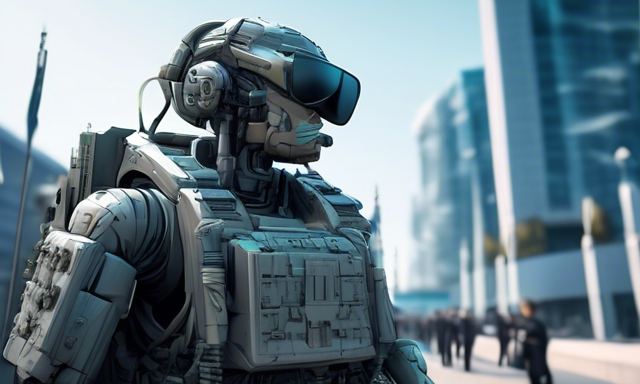Summit on Military AI: Collaborative Future 🤖🌍
South Korea has initiated a pivotal conference focused on the integration of artificial intelligence (AI) in military use. This gathering brings together representatives from over 90 nations, highlighting an urgent dialogue on the responsible deployment of AI technologies.
Understanding the Stakes at the Summit ⚖️
The two-day assembly in Seoul serves as a crucial platform for countries, including prominent players like the United States and China, to engage in enlightening discussions about military AI’s potential and its associated risks. This summit follows a previous meeting in Amsterdam where countries aligned on an initial “call to action” without enforcing any binding agreements.
Establishing Responsible Guidelines 📜
With a primary goal to create a comprehensive framework for military AI utilization, the Seoul summit seeks to enhance international protocols set forth in earlier discussions. South Korean Defense Minister Kim Yong-hyun emphasized both the transformative benefits and the perilous aspects of utilizing AI in military settings.
Kim articulated the potential of AI through the lens of contemporary warfare, referring to how AI-equipped drones were employed effectively in the conflict in Ukraine, dubbing them a modern equivalent to David’s slingshot. While he praised the advantages, he also cautioned that such technology poses significant risks if mishandled.
Key Focus Areas for Discussion 🔍
Foreign Minister Cho Tae-yul outlined critical themes for the discussions happening at the summit. Among these topics, ensuring compliance of AI systems with international laws and instituting measures to prevent autonomous weapons from making critical life-or-death choices without human intervention stand out.
- Proposed points of focus include:
- Legal compliance of AI systems
- Implementation of protective measures for human oversight
- Establishing fundamental guidelines for military AI utilization
The Role of Collaboration Among Stakeholders 🤝
A senior official from South Korea revealed that the summit aims to set minimum standards governing military AI use. The blueprint being proposed will draw inspiration from existing principles endorsed by organizations like NATO and various national frameworks. However, it remains questionable how many of the participating nations will agree to the final document, which is anticipated to lack any mechanisms for legal enforcement.
Emphasizing the importance of inclusive dialogues, summit organizers encourage interaction between diverse stakeholders. While much of AI’s technological growth is propelled by private enterprises, it is governmental policies that ultimately determine its applications in military contexts.
A Diverse Gathering of Participants 🌐
The event has gathered approximately 2,000 participants from multiple sectors, representing international organizations, academia, and the tech industry. The discussions will cover a range of crucial issues, including protective measures for civilians and AI’s integral role in managing nuclear weapons systems. These conversations signify the extensive ramifications of AI technologies in contemporary military strategies and security concerns.
It is worth noting that this summit is part of a larger international discourse on military AI. The United Nations is currently deliberating on potential regulations for autonomous weapon systems, ensuring adherence to international humanitarian guidelines.
International Initiatives and Collaborations 🌏
The United States has also proactively engaged in this domain, having launched an initiative last year aimed at promoting the responsible use of AI in military scenarios. This declaration encompasses a wide array of applications beyond traditional weapon systems and has garnered support from 55 countries as of August.
The collaborative nature of this summit can be seen in its co-hosting by South Korea, the Netherlands, Singapore, Kenya, and the United Kingdom. This diverse coalition underscores the global scope of the opportunities and challenges that military AI technology presents.
Hot Take: The Path Forward for AI in Military Use 🚀
As dialogues surrounding military AI evolve, it’s clear that establishing responsible guidelines necessitates cooperation among nations. The success of this summit may significantly influence the future of how AI integrates into military frameworks while balancing the innovative potential against ethical concerns. The conversations initiated in Seoul might pave the way toward a new era of military readiness that prioritizes both technological advancement and global safety.





 By
By
 By
By

 By
By
 By
By